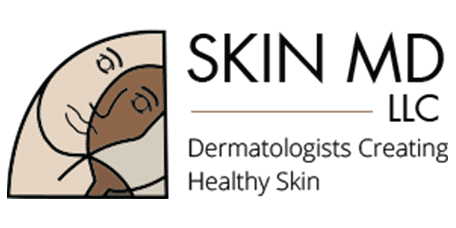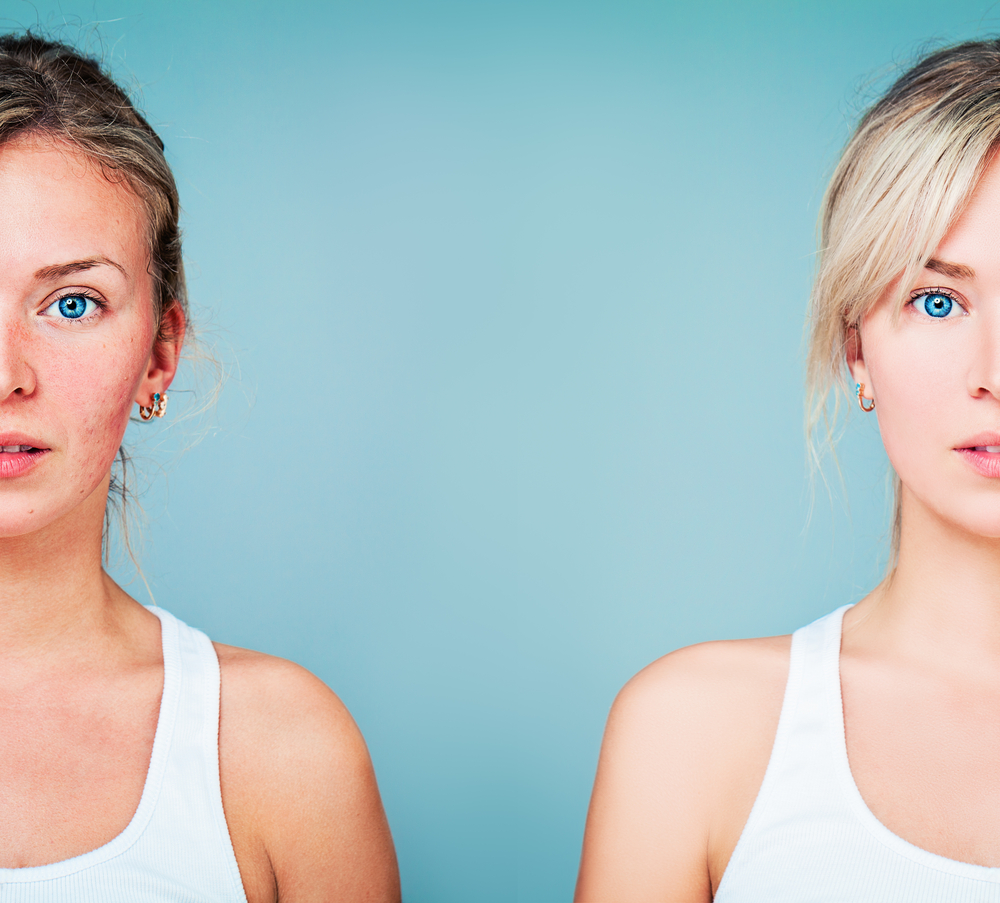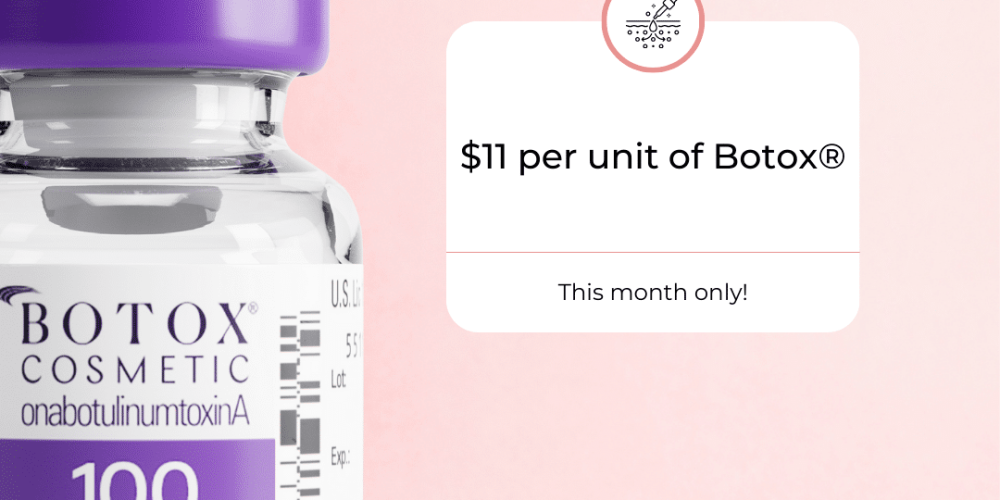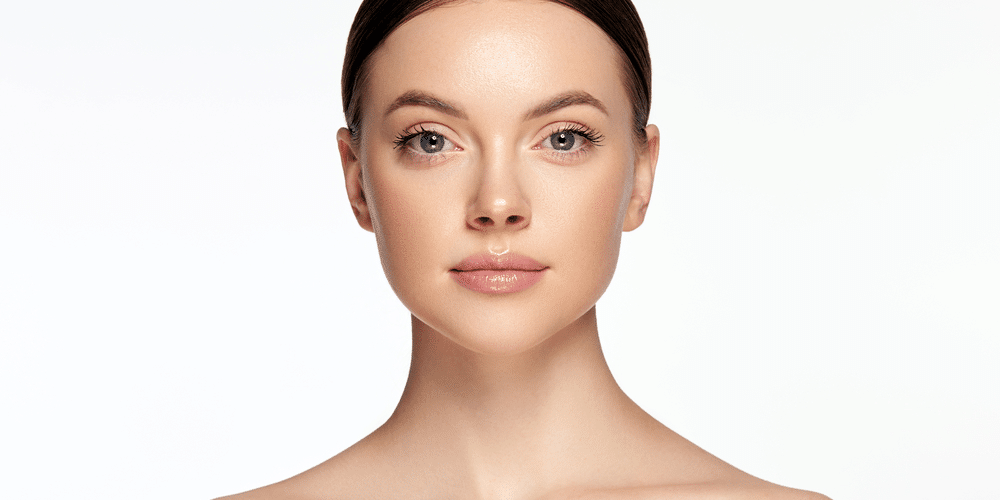Rosacea is a relatively common skin condition that begins with benign symptoms, such as easily flushing; however, over time, skin sensitivity characterized by acne-like bumps can progress and become more severe. While it may be difficult to prevent flare-ups, particularly when you aren’t sure what your skin is reacting to, there may be some things you can do to help flare-ups go away more quickly. At SkinMD in Orland Park, IL, we know of several techniques that can help you manage your skin condition.
What Helps Rosacea Go Away?
When we talk about helping rosacea go away, we aren’t usually talking about a cure – in fact, there is no known cure for this skin condition. However, there are treatments, techniques, and lifestyle factors that may be able to help you control flare-ups so your skin is in better condition and your symptoms are under control. Some of the most common treatments and techniques to help reduce flare-ups include:
Prescriptions
Medical-grade prescriptions from a dermatologist are sometimes the best solutions to reducing flare-ups. While some prescriptions can be used for the long term to manage your skin condition, other prescriptions are used only when flare-ups occur. Both oral and topical medications are commonly used to reduce inflammation in the face and control pimples or the acne-like bumps associated with this skin condition. Prescriptions can be used as stand-alone treatments or they can be combined with other techniques to manage your skin condition.
Laser Therapy
Laser therapy can be an excellent option to reduce inflammation, restore even skin tone, and even treat broken capillaries on the cheeks. Certain laser systems, such as Excel V, are gentle enough to be used on sensitive skin, while also being effective enough to target localized areas of affected red pigment on the skin surface.
This treatment is a good option for many patients because the skin absorbs light energy to break down affected skin while the surrounding skin is left unaffected. Like many other laser treatments, this system can be used as part of a continual treatment to manage your skin condition, or it can be used occasionally to reduce flare-ups.
Skin Care
Your skin care routine and the products you use can also be instrumental in managing your skin condition. Because this skin condition will cause your skin to be sensitive, prone to redness, or even create additional skin concerns (like dryness), it’s important to create a skin care routine with quality products that will promote the health and function of your skin.
Ideally, your skin care products should be gentle and made with simple, hydrating ingredients that will not irritate the skin or strip the skin of moisture. Moisturizing your skin twice a day is another key element, as well-moisturized skin will maintain a better moisture barrier that will offer some protection from environmental triggers. Finally, your skin care routine should always include SPF since UV rays can make the symptoms of this skin condition worsen.
Lifestyle
Many triggers for flare-ups are associated with lifestyle factors, such as being exposed to extreme temperatures without any skin protection or frequently drinking alcoholic beverages. Even excessive exercise or exercise that causes a lot of sweating or exposure to chemicals like chlorine can cause your skin condition to worsen.
You may want to make certain lifestyle changes that will minimize flare-ups, such as limiting stress, drinking enough water, and avoiding spicy foods or hot beverages that may cause the skin to flush. Certain medications may also need to be revised if they have blood-thinning or skin sensitivity side effects. Making small lifestyle changes can greatly improve the condition of your skin and reduce the frequency of your flare-ups.
What About Make-Up?
Some people believe that make-up can cause rosacea flare-ups, but the truth is that only some chemicals found in some cosmetics will trigger a rosacea flare. This skin condition causes the skin to be incredibly sensitive, particularly to certain chemicals and ingredients that are commonly found in cosmetics. However, this doesn’t mean that you won’t be able to use cosmetics.
Certain brands of therapeutic cosmetics can be safely used on sensitive skin or skin with certain conditions. The right make-up for your skin type and skin condition can help camouflage flare-ups without worsening skin sensitivity. If you are interested in therapeutic make-up, our skin experts can make recommendations for the products that will work best for your skin condition.
What Are Some Common Irritants?
When you are selecting skin care products or even cosmetics to use, it’s important to avoid all known irritants for this skin condition. Every patient will have unique irritants that will cause flare-ups, but there are several common irritants that are found in skin care products as active or inactive ingredients. It’s best to avoid these irritants as much as possible, such as:
- Witch hazel
- Menthol
- Alcohol
- Peppermint
- Eucalyptus
- Clove
- Salicylic acid
- Camphor
- SLS (sodium lauryl sulfate)
Many cosmetics and skin care products, including shampoo and conditioner, have these products. For example, SLS is a sulfate found in many popular shampoos that helps lift dirt and oil from the scalp; this ingredient is also found in some body soap and facial cleansers. Natural ingredients, like peppermint and eucalyptus, may be found in homeopathic stress-relief aromatherapy, but these should also be avoided to reduce possible flare-ups.
What Are Some Common Soothing Ingredients?
Although there is a long list of potentially drying or irritating ingredients you should avoid, there are also ingredients that may be useful if you are trying to soothe your skin during a flare-up. Many dermatologists recommend gentle formula lotions like Cetaphil and CeraVe to provide all-day moisture to the face and body, which can hydrate skin to reduce flare-ups.
Another very common skin-soothing ingredient used by many is petroleum jelly or Vaseline, which has been studied by dermatologists and is approved to protect reddened skin during a flare-up. Aloe very is another widely-used at-home product that can be used to soothe skin during a flare-up and even relieve burning or stinging that may be associated with this skin condition.
Do Flare-Ups Go Away Naturally?
Although there is no cure for this skin condition, you may be relieved to know that even the most stubborn of flare-ups will generally go away given enough time and enough space from potential triggers. However, because flare-ups can last for several weeks or months, it can be difficult to wait for flare-ups to go away by themselves. If you are experiencing a flare-up, it’s best to seek treatment and make changes so you can reduce your symptoms.
When left untreated, this skin condition gradually worsens over time. While the early symptoms of this condition don’t seem serious, these conditions can steadily become more severe, leading to visible blood vessels, thickened and bumpy skin, swollen eyelids, and even light sensitivity. About half of all patients with this condition will have symptoms that affect their eyes or vision. Early treatment to reduce flare-up frequency is your best tool.
Can Flare-Ups Happen Anywhere?
The most common area for rosacea flare-ups to occur is the face, specifically the cheeks, nose, chin, and forehead. However, some people may experience flare-ups on other parts of their body, especially when the skin in these areas comes into contact with a known irritant. For example, some people may experience flare-ups on the scalp, ears, neck, back, and chest. There are even patients who have flare-ups on the arms or legs.
It’s important to note that flare-ups on non-facial areas of the body are much less common. However, no matter where your flare-ups occur, you should treat the symptoms the same with laser treatments, prescriptions from your doctor, or at-home products like lotion or other moisturizers. If you aren’t sure irritation on other areas of the body is rosacea, please contact a dermatologist for an examination.
Find the Right Technique for You
People who are diagnosed with rosacea may share common irritants or they may have unique causes for their flare-ups. Similarly, people with this skin condition may not respond the same to all treatment options, which means it may be necessary to explore your potential treatments before you find one that works for you. With the help of an expert dermatologist, you can find a treatment that works to help reduce your flare-ups so you can manage your condition better. Contact us at SkinMD in Orland Park, IL, Skokie, IL, Evergreen Park, IL, and Willowbrook, IL to schedule your first appointment today.



